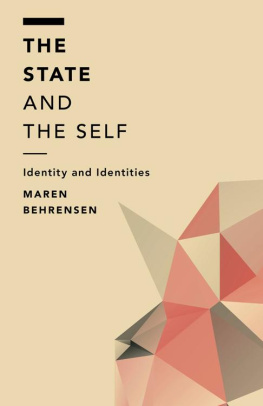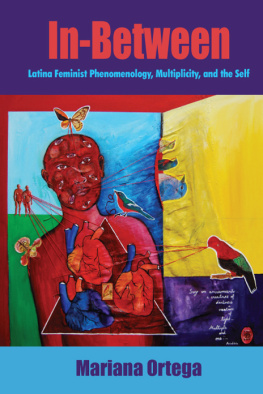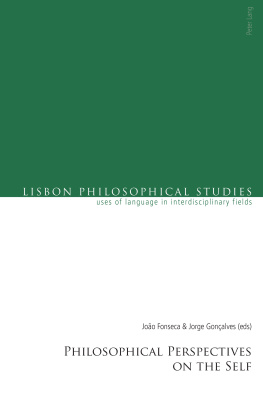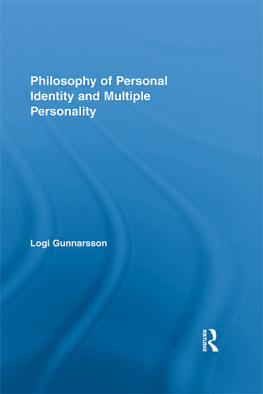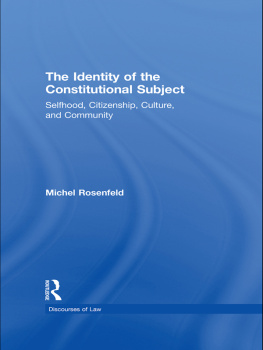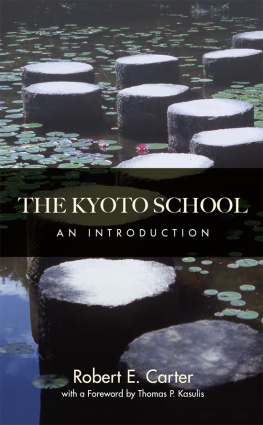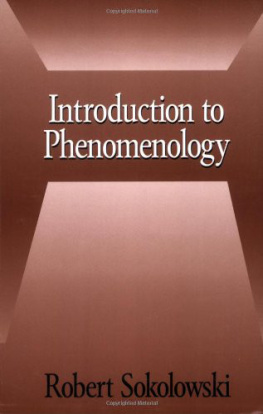Beyond Personal Identity
Curzon Studies in Asian Religion
Series Editor: Sue Hamilton, Kings College, London
Editorial Advisory Board:
Nick Allen, University of Oxford
Catherine Despeux, INALCO, Paris
Chris Minkowski, Cornell University
Fabio Rambelli, Williams College, Massachusetts
Andrew Rippin, University of Calgary
Curzon Press publishes a Series specifically devoted to Asian Religion, considered from a variety of perspectives: those of theology, philosophy, anthropology, sociology, history, politics and literature. The primary objects of study will be all the religious traditions of the Indian sub-continent, Tibet, China, Japan, South-East Asia, Central Asia, and the Near and Middle East.
The methodology used in the works published in the Series is either comparative or one focused on (a feature of) a specific tradition. The level of readership ranges from undergraduates to specialist scholars. The type of book varies from the introductory textbook to the scholarly monograph.
Tradition and Liberation
The Hindu Tradition in the Indian Womens Movement
Catherine A. Robinson
Shinto in History
Ways of the Kami
John Breen and Mark Teeuwen
Beyond Personal Identity
Dgen, Nishida, and a Phenomenology of No-Self
Gereon Kopf
Proposal or scripts for the Series will be welcomed by the Series Editor or by Jonathan Price, Chief Editor, Curzon Press.
Beyond Personal Identity
Dgen, Nishida, and a Phenomenology of No-Self
Gereon Kopf
CURZON
First Published in 2001
by Curzon Press
Richmond, Surrey
http://www.curzonpress.co.uk
2001 Gereon Kopf
All rights reserved. No part of this book may be reprinted or reproduced or utilised in any form or by any electronic, mechanical, or other means, now known or hereafter invented, including photocopying and recording, or in any information storage or retrieval system, without permission in writing from the publishers.
British Library Cataloguing in Publication Data
A catalogue record of this book is available from the British Library
Library of Congress Cataloguing in Publication Data
A catalogue record for this book has been requested
ISBN 0700712178
CONTENTS
Preface
When I took my first course in Buddhism eleven years ago at Temple University, I found myself perplexed and mystified by the writings of Dgen and the concepts of no-self, casting off body and mind, and presencing they espoused. This class sent me on a journey to understand these concepts within their own conceptual framework and thus into the field of comparative philosophy, Japanese language and culture, and the dialectical philosophy of NISHIDA Kitar. The tentative product of this journey is the present volume, which grew out of a significant revision of my dissertation. It attempts to relate the Zen Buddhist notion of no-self as it is elaborated by Dgen and Nishida to the problem of personal identity and to the theories of self developed in twentieth century phenomenology and existentialism; in short, it presents a phenomenology of no-self. In this sense, it combines my two fundamental intellectual interests: on the one hand, the quest to understand selfhood with all its ethical, psychological, existential, and political ramifications, which are all reflected in the dilemma of reconciling change and a sense of constancy, and, on the other, the attempt to dialogue notions of selfhood as different as Leibniz monadology, Parfits rejection of personal identity, Merleau-Pontys phenomenology of habit-formation, Buddhist notions of selflessness, and Nishidas infinite dialectic. I hope that this work will reflect this quest and stimulate or nurture the comparative discourse on selfhood.
This book could not have been finished if it had not been for a host of teachers, colleagues, friends, and sponsors. Much of my academic development I owe to Professor NAGATOMO Shigenori, whose insightful and perceptive criticism has served both as model of, and as inspiration for, my research. I would also like to thank Professors J. N. Mohanty, Thomas Dean, YUASA Yasuo, and KIMURA Kiyotaka for their guidance and vote of confidence; Professors James Heisig, YUSA Michiko, Steven Heine, and Gen Reeves, for their collegial support and advice; my colleagues in the Department of Religion and Philosophy at Luther College for their patience and support; Professors TATENO Masami, Jeff Shore, YAMABE Nobuyoshi, KURASAWA Yukihisa, WATANABE Manabu, Alfons Teipen, Terry Rey, Dr. ARAKAWA Naoya, and Dr. Douglas Berger for many conversations and their friendship; Dr. Samuel Brainard for innumerable discussions and insightful criticism; Professor Barbara Thornbury, and Ms. TAMURA Kyoko for introducing me to the Japanese language; Mr. Jonathan Price of Curzon Press for having faith in my proposal; Mr. Peter Spuit, Mr. Nathan Pralle, and Ms. Rebecca Meier for their help with the manuscript; Mr. Jack Kilcrease and Mr. Christian Salter for compiling the index; and the library staff at Luther College. I would like to thank Dr. Martin Srajek for his longstanding friendship and insightful comments which challenged me to look at the topic of personhood from a multitude of perspectives. Particularly, I thank Ms. Francesca Soans, who proofread the manuscript with precision and competency, for being a constant challenge to my ideas, and for simply being there. In addition, I would like to thank Luther College for supporting my research with the Ylvesaker Research Fund and a Faculty Development Grant and the Japan Foundation for its generous Fellowship, which enabled me to study and research for one year under Professor Yuasa, an experience which has been invaluable professionally as well as personally. I am further indebted to Professors Robert Schinzinger, David Dilworth, ABE Masao and Norman Waddell, TAMAKI Koshiro, and YUSA Michiko, whose translations of Dgen and Nishida have influenced me greatly insofar as my interest in Zen preceded my proficiency in Japanese. The process of compiling and writing this study has proven once more that interrelatedness in which we find ourselves. The inadequacies and shortcomings of this study, notwithstanding this overwhelming support, however, are solely my responsibility.
Gereon Kopf
Decorah, 2000
Introduction
Im known as Ngasena, your Majesty, thats what my fellow monks call me. But though my parents have given me such a name its only a practical designation. There is no question of a permanent individual implied in the use of the word.
Ngasena
If I say It will not be me, but one of my future selves, I do not imply that I will be that future self. He is one of my later selves, and I am one of his earlier selves. There is no underlying person who we both are.
Derek Parfit
Although they are not one, they are not different; although they are not different, they are not identical; although they are not identical, they are not many.
DGEN Kigen
That which is identical in itself is not merely one but must be the many as one and the one as many. For this reason, that which changes does not change and that which does not change changes, as does, for example, our self-awareness; we can think of this as self-identity.
NISHIDA Kitar
Among all Buddhist concepts, the notion of no-self (Skrt.: antman, Jap.: muga) seems to be the single most important concept within the Buddhist tradition and, at the same time, the least intelligible one to those outside of the Buddhist tradition. Recently, however, the Buddhist theory of no-self finds its conceptual equivalent in the outright rejection of an underlying personal identity or self, formulated by the reductionist philosophies of David Hume and Derek Parfit.on empirical grounds and demands a rethinking of this pivotal philosophical paradigm. In addition, DGEN Kigens Zen Buddhism and NISHIDA Kitars philosophy, which is akin to Zen Buddhism in its conceptual structure, developed a phenomenology of no-self which suggests a conceptual strategy to respond to the questions of personal identity and theorizes a selfless self after the refutation of the notion of personal identity and after the loss of an enduring self. To a philosophy of a self devoid of personal identity, Dgen and Nishida contribute their exploration of three fundamental features which are necessary for, yet often overlooked by, the discourse of personal identity. These are the self-constitution of the self, the moment of alterity and recognition, and a philosophy of time.
Next page

